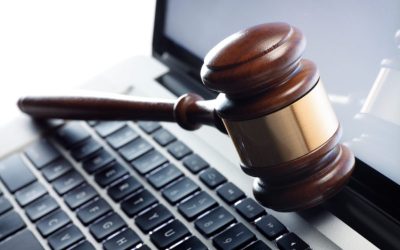Defamation is defined as any written or spoken false communication about a person (an individual or corporate body) from one party to another party carrying the legal effect of exposing the person spoken about to either: –
– Public contempt.
– Scorn.
– Humiliation
– Affecting the goodwill of the persons spoken about in their trades, businesses, livelihoods, or professions.[i]
Defamatory words are likely to injure the reputation of any person by exposing the person to hatred, contempt, or ridicule, or likely to damage any person in his or her profession or trade by injury to his reputation.[ii]
Digital defamation is perhaps the easiest way to express anguish by a customer or an ex-employee, dissatisfaction or even personal vendetta, unhealthy competition, or maybe simply a troll of a public figure or a reputed organization for it is quick, far-reaching, convenient, and of most free.[iii]
Defamation can be broken up into two types: slander and libel.
- Slander is a false statement made through spoken communication (for example, giving a defamatory speech);
- Libel is a written or published false statement (for example, an online review, publication of print media, or social media post).
Digital defamation is a term used to describe content that is published on a social media platform that defames a person or business. This type of defamation is also commonly referred to as libel, cyber defamation, disparagement, character assassination, cyberbullying, and cyber harassment.[iv] Digital defamation occurs on the internet or social media. For instance, in 2021, a young man named Izu was accused of rape on Twitter and he committed suicide. It was after he died that people found out that he was wrongly accused.[v]
Consequences of not taking Digital Defamation Seriously?
There are many possibly life-changing consequences of not taking social media defamation seriously. Some of them are;[vi]
- Harm to your reputation. Your colleagues, friends, and family may see or hear about the defamatory statements, and if they believe what is being said, your reputation and relationships could suffer.
- Loss of business and/or profits. If defamatory statements are made about your business in the form of false online reviews, potential customers may believe the malicious lies and avoid doing business with you.
- Psychological damage. The negative effects on your reputation, relationships, and professional life could also affect your mental health. Many victims of defamation suffer from extreme stress, anxiety, and depression due to the upheaval defamation causes to their lives.
How to Prove an Action in Court for Defamation?
For an action in defamation to succeed in the Nigeria Court, the Plaintiff must prove three crucial things:[vii]
- That the words were defamatory
- That the terms referred to the Plaintiff, and
- That the words were published
Remedies available to victims
Compensation is one of the remedies that businesses or individuals can recover depending on their damages and aims to put them back in the position they were before they were defamed online. There are other remedies different from compensation or claiming damages.
Those damages fall into a variety of categories:[viii]
- Compensatory damages, also known as actual damages
- Nominal damages
- Punitive damages
- Apology
- Injunctive reliefs
Compensatory damages
Compensatory damages aim to compensate the business for the financial harm that they have suffered from the defamatory statements.
Nominal damages
Just because digital defamation did not inflict financial suffering on your business does not mean that it was not defamatory. In these cases, where the business stands to recover few if any, compensatory damages, they can still pursue nominal damages. If successful, the company will likely recover very little money but win a court’s ruling that says the statements about the business were defamatory and false.
Punitive damages
While compensation aims to put the business back in the place it was before the defamation occurred, punitive damages are meant to punish the wrongdoer by making them pay the company more than what it has suffered. Courts will rarely award punitive damages unless you can prove that there was actual malice behind the defamation.
Lawyers’ fees
Businesses that have been defamed online can also demand that the person making the false statements pay for their attorneys’ fees. After all, if it were not for their defamatory statements, the business would not have had to hire a lawyer to file a lawsuit over the online libel.
Apology
Victims of digital defamation can request that the person who made the libelous statement should make an apology on the platform on which the libelous statement was made or publish an apology in the newspaper.
Injunctive relief
Injunctive relief is a court order that stops a party from performing a certain action or requires them to act in a certain way. Victims of digital defamation can demand that the libelous statements be removed as a part of their lawsuit. Winning a defamation case but leaving false statements on the internet can prolong the harm that they cause.
CONCLUSION
The law protects the reputation and name of a person in Nigeria and any action or negative words that destroy a person’s reputation or business is a ground for action at the High Court and the victim can seek redress.
[i] https://www.tekedia.com/defamation-under-nigerian-law-what-you-need-to-know/#:~:text=Defamation%20is%20defined%20under%20Nigerian,–%20Public%20contempt accessed on 31/05/2023
[ii] Section 373 of the Criminal Code
[iii] https://www.entrepreneur.com/en-in/technology/how-to-respond-to-defamation-online-without-damaging-y accessed on 22/05/2023
[iv] https://www.minclaw.com/review-social-media-defamation-libel/ accessed on 22/05/2023
[v] https://www.herald.ng/justiceforizu-young-entrepreneur-falsely-accused-of-rape-on-twitter-commits-suicide/ accessed on 31/05/2023
[vi] https://www.minclaw.com/review-social-media-defamation-libel/ accessed on 21/05/2023
[vii] https://www.mondaq.com/nigeria/libel–defamation/1255204/how-to-sue-for-defamation-in-nigeria accessed on 21/05/2023
[viii] https://www.katzlawgroup.com/internet-defamation-damages accessed on 22/05/2023
Written by Olalekan O. Elizabeth for The Trusted Advisors
Email us: [email protected]

